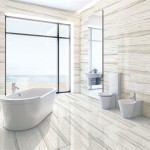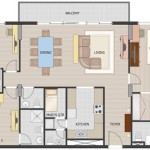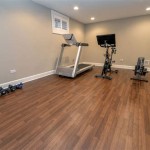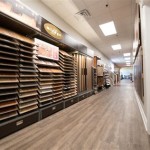LL Flooring Butcher Block Countertops: A Comprehensive Guide
LL Flooring, formerly known as Lumber Liquidators, offers a variety of butcher block countertops, providing homeowners with a durable and aesthetically pleasing surface for kitchens, bathrooms, and other areas of the home. This guide explores the various aspects of LL Flooring's butcher block countertop offerings, including wood species, construction, installation, and maintenance.
Butcher block countertops are constructed from straight cuts of wood, typically hardwoods like maple, walnut, or cherry, laminated together to form a thick, solid surface. This construction provides a robust and stable countertop capable of withstanding the rigors of daily use. LL Flooring offers a range of wood species, each with unique characteristics in terms of grain pattern, color, and hardness.
Maple butcher block is a popular choice due to its light color, tight grain pattern, and excellent durability. It offers a clean, classic look that complements various kitchen styles. Walnut, with its rich, dark brown hues and distinctive grain, provides a more dramatic aesthetic, adding warmth and sophistication to a space. Cherry, known for its reddish-brown tones and subtle grain, offers a balance between the lightness of maple and the darkness of walnut.
Beyond these common options, LL Flooring may also offer butcher block countertops in other wood species, such as hickory, oak, or acacia. Each species possesses unique characteristics that contribute to the overall appearance and performance of the countertop. Consumers are encouraged to explore the available options and choose the wood species that best aligns with their design preferences and functional needs.
Construction methods also play a significant role in the overall quality and durability of butcher block countertops. Edge grain construction involves laminating narrow wood strips on their sides, creating a striped pattern on the surface. This method is known for its strength and resistance to wear and tear. End grain construction, on the other hand, involves laminating small wood blocks together, revealing the end grain on the surface. This method provides a unique checkerboard pattern and is highly resistant to cuts and scratches, making it a popular choice for cutting boards and chopping blocks.
LL Flooring offers butcher block countertops in various pre-fabricated sizes, allowing for easier installation. However, custom sizing is often available for those requiring specific dimensions. Prior to installation, it is crucial to acclimate the countertop to the room's environment. This involves leaving the countertop in the room for several days to allow the wood to adjust to the temperature and humidity levels, minimizing the risk of warping or cracking after installation.
Installation typically involves securing the countertop to the base cabinets using screws or adhesive. Proper sealing is essential to protect the wood from moisture and stains. LL Flooring recommends using food-safe mineral oil for initial sealing and regular maintenance. Mineral oil penetrates the wood, creating a barrier against liquids while maintaining the natural beauty of the wood.
Regular maintenance is crucial for preserving the beauty and longevity of butcher block countertops. This includes wiping up spills promptly, avoiding placing hot pots and pans directly on the surface, and periodically reapplying mineral oil. Depending on usage, re-oiling may be necessary every few weeks or months. For deeper cleaning, a mild soap and water solution can be used, followed by thorough drying and reapplication of mineral oil.
Choosing the right butcher block countertop involves considering factors such as wood species, construction method, size, and maintenance requirements. LL Flooring provides a range of options to meet diverse needs and preferences. By understanding the characteristics of each wood species and the importance of proper installation and maintenance, consumers can make informed decisions and enjoy the beauty and functionality of their butcher block countertops for years to come.
The thickness of the butcher block countertop also plays a role in its durability and overall aesthetic. Thicker countertops offer a more substantial and luxurious feel, while thinner options may be more suitable for smaller spaces or budget-conscious projects. LL Flooring typically offers butcher block in various thicknesses, allowing customers to choose the option that best suits their needs.
Furthermore, the finish of the butcher block countertop can significantly impact its appearance and maintenance requirements. While mineral oil is a common and recommended finish, other options, such as beeswax or proprietary wood finishes, may also be available. Each finish offers different levels of protection and sheen, and consumers should consider these factors when making their selection. Consulting with LL Flooring specialists can provide valuable insights into the various finish options and their respective advantages and disadvantages.
Finally, price is an important consideration when selecting a butcher block countertop. The cost can vary depending on factors such as wood species, construction method, thickness, and size. LL Flooring offers a range of butcher block countertops at various price points, making it possible to find an option that fits within a given budget. Comparing different options and understanding the factors that influence pricing can help consumers make informed purchasing decisions.

Butcher Block Countertops Lumber Liquidators

Our Butcher Block Counter Top Review One Year Later

Williamsburg Butcher Block Co 1 2 X 25 8 American Walnut Countertop Ll Flooring

Butcher Block Countertops Lumber Liquidators

American Cherry Butcher Block Traditional Kitchen Other By Ll Flooring Houzz

Juniper Butcher Block Countertop

Williamsburg Butcher Block American Walnut Countertop Traditional Kitchen Other By Ll Flooring Houzz

How To Choose The Right Butcher Block Countertops For Your Kitchen

Butcher Store Block Wood

Butcher Block Countertops Lumber Liquidators








